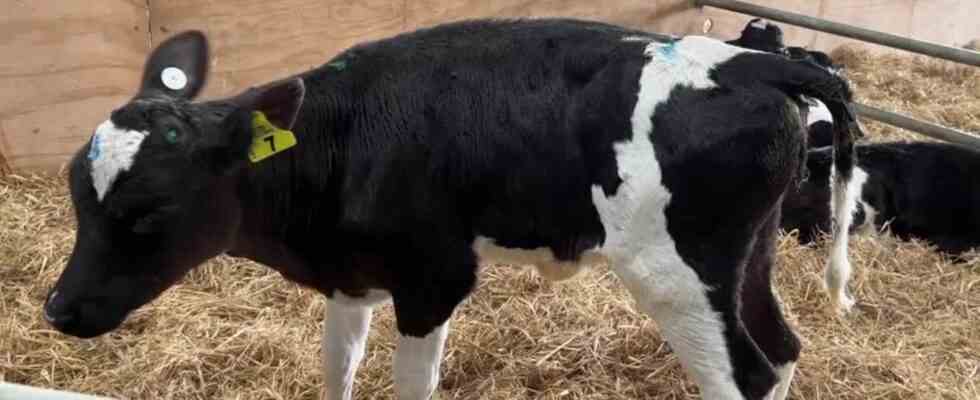What matters is what comes out. And that’s too much methane for cattle in farming. The gas is produced during the digestion process of ruminants. When animals fart and burp, it is released into the atmosphere, where it causes a stronger greenhouse effect than CO2. In order to reduce the climate-damaging emissions from the cow’s stomach, researchers on a farm in New Zealand rely on a probiotic feed additive – “Kowbucha”. Salome Bassett, lead researcher, says they did this by studying some strains of bacteria used in human probiotic foods. “And we found that we could actually achieve some reduction in methane emissions. That was kind of our eureka moment: can we use other strains and maybe that would be a solution for our livestock here in New Zealand?” In a first series of tests, it was possible to reduce methane emissions by up to 20 percent, says Bassett. The application for farmers is super easy. “They can take a sachet of powder and just mix it into the milk they would be giving their calves anyway, just mix it in the bucket, give it to the calf and you’re done.” Feed additives to reduce methane are also being tested in other countries. In New Zealand, however, cattle and sheep graze mainly outdoors. Agricultural economist Susan Kilsby anticipates high costs. “Right now, the easiest way to reduce emissions is to reduce production or keep fewer animals. It’s a real challenge when we’re trying to keep producing food and keeping our export earnings at the desired level at the same time.” About half of New Zealand’s greenhouse gas emissions come from agriculture. By 2030, biogenic methane emissions are to be reduced by ten percent compared to 2017. The government is also planning to price the emissions from cows and sheep separately. From 2025, farmers would then have to pay for the emissions from their animal husbandry.
Feed additive to reduce methane emissions from cows

Watch the video: Feed additives are said to reduce methane emissions from cows.
